All Stories
-
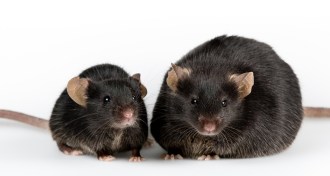 Health & Medicine
Health & MedicineC-sections lead to heftier mouse pups, but the implications for people aren’t clear
Mice born via C-section gained more weight than mice born vaginally, adding to the body of research that hints at a link between birth mode and future health.
-
 Cosmology
CosmologyWhat detecting gravitational waves means for the expansion of the universe
The latest LIGO signal proves that gravitational waves travel at the speed of light, ruling out a swath of cosmological theories in the process.
-
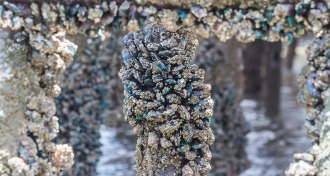 Life
LifeA new material may one day keep mussels off piers and boat hulls
Mussels don’t stick to a new lubricant-infused silicone material.
-
 Health & Medicine
Health & MedicineRobotic docs can boost surgery time and cost
Robots in the OR may not be worth the extra time or money for all procedures.
-
 Genetics
GeneticsInbreeding hurts the next generation’s reproductive success
Inbreeding has evolutionary consequences for humans.
-
 Genetics
GeneticsMating with Neandertals reintroduced ‘lost’ DNA into modern humans
Neandertal DNA brought back some old genetic heirlooms to modern humans.
-
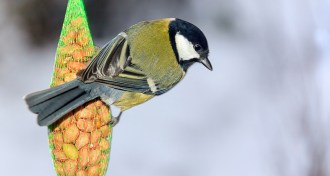 Life
LifeHow bird feeders may be changing great tits’ beaks
Longer beaks may be evolving in U.K. great tits because of the widespread use of bird feeders in the country.
-
 Climate
Climate‘Killer Hurricanes’ reconstructs the past to predict storms of the future
Geologists find clues to the future of deadly hurricanes, written in stone and sand, in the new NOVA documentary “Killer Hurricanes.”
-
 Environment
EnvironmentPollution killed 9 million people in 2015
First global look estimates the massive human and financial toll caused by pollution-related health problems.
By Laura Beil -
 Astronomy
AstronomyDawn spacecraft will keep orbiting the dwarf planet Ceres indefinitely
NASA just gave the Dawn spacecraft a second mission extension to orbit Ceres indefinitely.
-
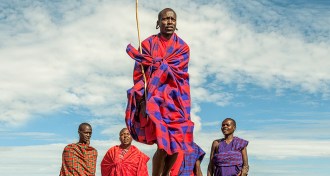 Anthropology
AnthropologyScientists battle over whether violence has declined over time
People are no more violent in small-scale societies than in states, researchers contend.
By Bruce Bower -
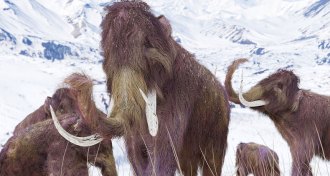 Genetics
GeneticsResurrecting extinct species raises ethical questions
'Rise of the Necrofauna' examines the technical and ethical challenges of bringing woolly mammoths and other long-gone creatures back from the dead.